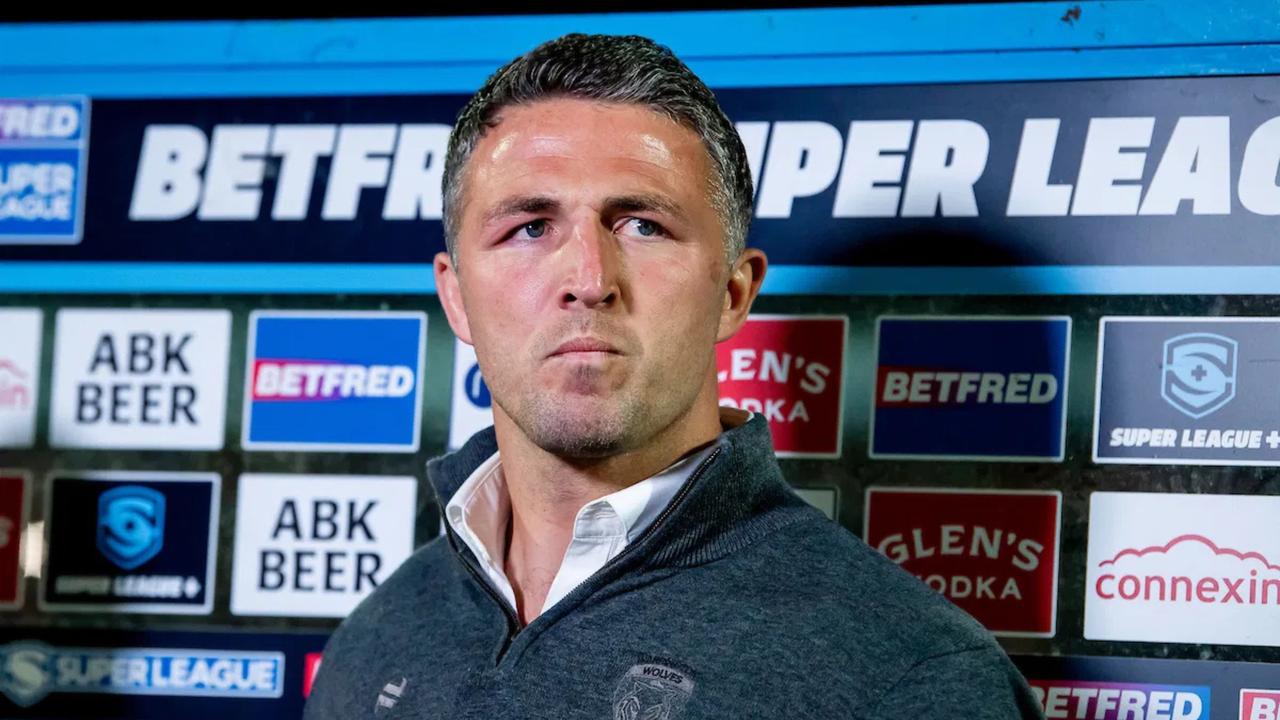Junior rugby league considering “weight and age” categories
The NRL is exploring a major overhaul of junior football guidelines including the implementation of controversial “weight and age” categories.
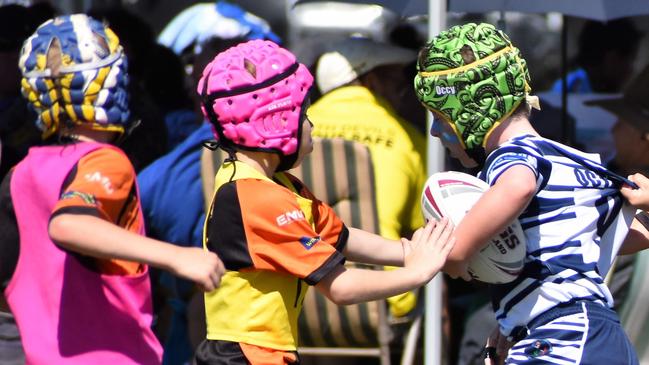
NRL
Don't miss out on the headlines from NRL. Followed categories will be added to My News.
The NRL is considering implementing “weight and age” categories as it looks to make the game safer for junior footballers.
News Corp Australia understands the NRL, which is looking at mandatory stand-down periods for elite players suffering concussion, will explore the potential of a nationwide overhaul of junior football guidelines, and debate the merits of weight and age categories.
Leading NRL figures such as Souths owner Russell Crowe, rugby league immortal Andrew Johns and Penrith star Nathan Cleary have long advocated for an end to age-based junior football.
State governing body the NSWRL told News Corp Australia its guidelines allowed for parents and guardians to apply to register their children down an age group if size was a concern.
Select junior competitions in NSW and Queensland have already used and trialled “weight and age” categories, and the feedback has been positive.
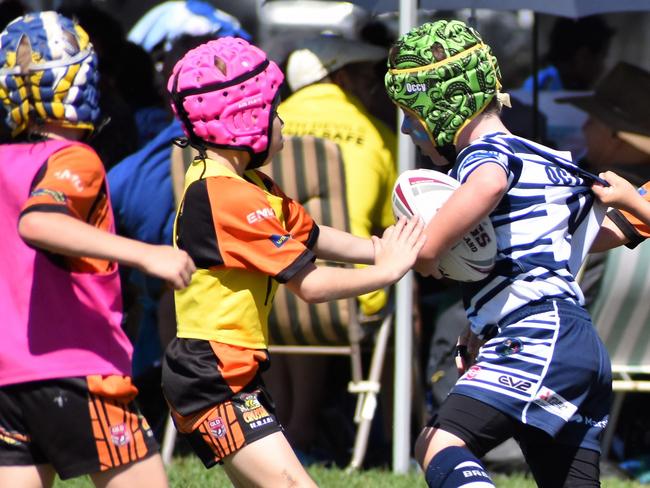
“During piloting of the framework [in Queensland] and this weight-related approach, 85 per cent of families said their child’s enjoyment levels either met, or exceeded expectations,” an NRL spokesman said. “Sixty-five per cent said it improved their confidence levels, and 58 per cent said their child had more involvement opportunities.”
But the NRL hierarchy may consider formalising the framework, among other measures to ensure player safety.
An NRL spokesman said there was an existing 18-month registration window which provided an opportunity for those born after June 30 to apply to play in a competition directly below their age category.
“This allows them the chance to play with and against kids more closely aligned to their own stage of development,” the spokesman said.
But “weight and age” has been a hotly debated area and it is yet to be implemented wholly in junior rugby league.
The current framework was formed after extensive research to better understand weight-related competitions, including the various models that have been offered previously in union and league.
“In what is a very complex issue, the model that best supported the philosophies of the (player development framework) was the model long offered by the Auckland Rugby League,” the NRL spokesman said.
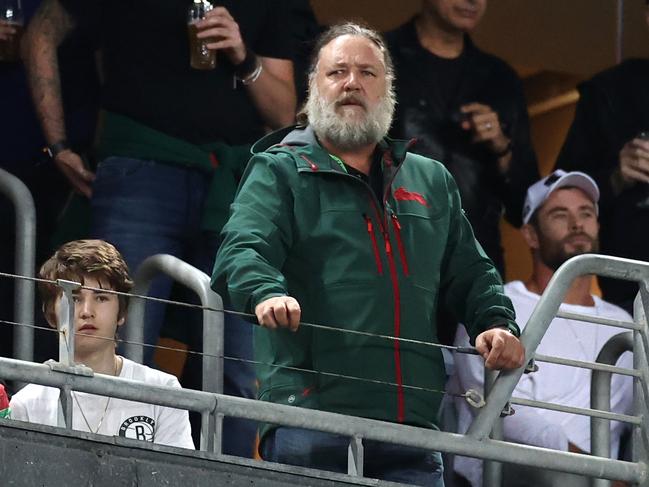
“This model allows children to stay within their age category but provides the opportunity for families to elect to play in an open weight competition, with the understanding this will include players of all shapes and sizes, or a restricted weight competition, with the knowledge their child will be playing against players at a similar stage of development.
“We will continue to work with our state leagues to provide weight-related opportunities such as carnivals and competitions, and for those born later in the year the opportunity to play in an environment with those more closely aligned to their stage of development.
“However, the issue of weight-restricted competitions is complex, there are numerous examples of the socio-emotional impact categorising by weight can have, including children becoming overly focused on losing weight, and the cognitive variation that can occur across ages despite physical similarities.
“Another consideration is over the course of the last 20 years the majority, if not all, season-long offerings of weight-related competitions haven’t materialised due to a lack of demand.”
Last year, in the biggest shake-up to junior rugby league in decades, the NRL and NSWRL signed off on a plan to ban tackling until midway through the under 7s. It already had been in place in Queensland for many years.
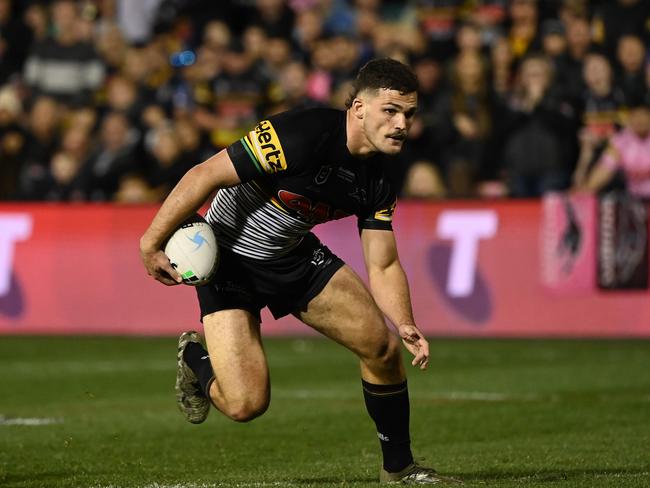
In 2018 South Sydney owner Crowe penned a column calling for rugby league to implement weight and age.
“I also saw 11-year-old’s break elbows, wrists, be “mildly” concussed, head slammed and battered,” Crowe wrote in a News Corp column.
“Whether you like it or not, New Zealand Rugby Union is the torchbearer for ball-in-hand sports in our part of the world. I believe their dominance and consistency is based on the weight system they apply in junior football.”
Penrith halfback Cleary, who played weight and age football as a teenager in New Zealand, has previously openly supported the system.
“After my first ever match it was hard to even fathom playing footy because the skill aspect was out of the game,” Cleary said in 2017.
“It was all about whoever could run the hardest and tackle the hardest. If you’re just getting smashed all the time it’s not much fun as a little bloke.”





